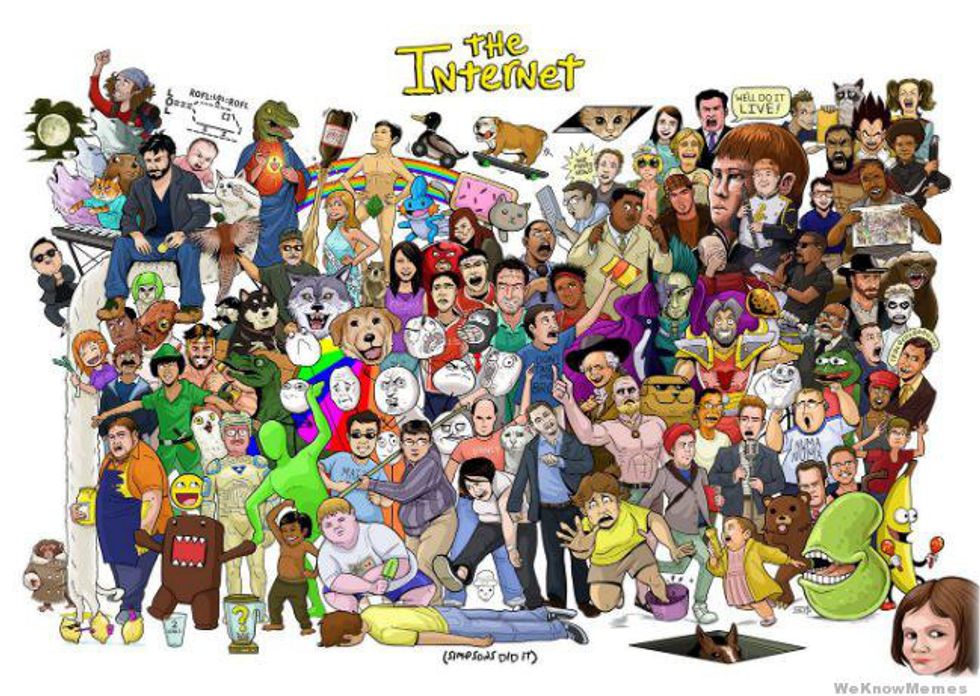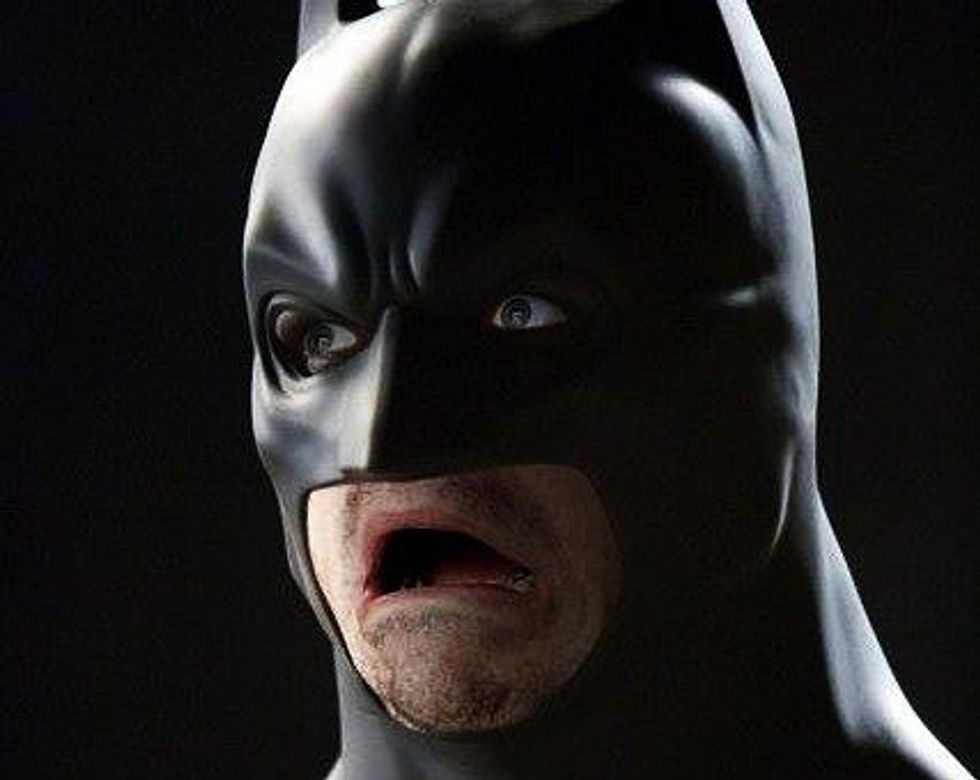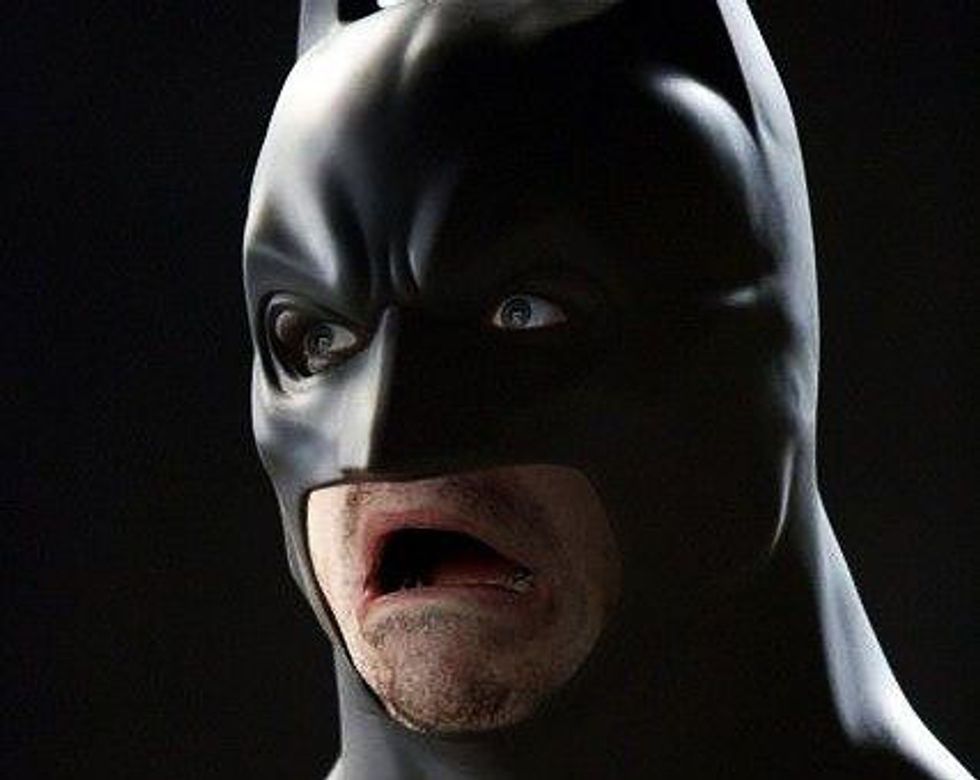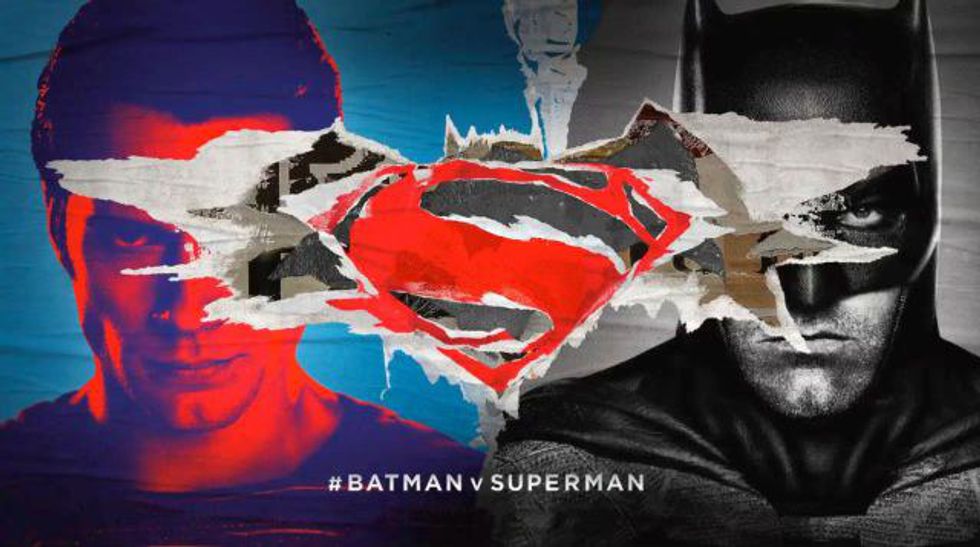Let’s clear the air first. Without objection, Batman is cool.
I have no qualms about openly admitting there is something deeply appealing about the cowled crusader. Perhaps it's the manifestation of both hyper-competence and angst that draws us to like ol’ Bats. Perhaps it’s the age-old draw we Americans feel towards the heroic vigilante. Maybe we like him because he’s become a meme, in the Internet-age sense of the word.
If you listen carefully, you can hear the sound of Richard Dawkins screaming in the distance.
Having said that, I can’t shake the feeling that we’ve reached maximum saturation. There’s Batman merchandizing everywhere, and it’s gotten to the point where defining Batman has become more difficult than Chinese algebra. Should we celebrate the Batman that appears in the 1990s animated series? What about Christopher Nolan’s more realistic take? The paranoid "Batman v. Superman" version? The Lego Batman?
I, for one, nominate Adam West for “Most Fun Batman”.
I ask this not because I discourage experimentation with the franchise but because I think we’ve finally reached critical mass. The mass popularization of Bruce Wayne’s alter-ego is enough to make even the most dedicated comic fan blush with embarrassment, and the diffusion of identity we’ve witnessed is rather confusing.

So, wait, I forget; is Batman v. Superman canon or is The Batman Lego Movie?
In 1963, French philosopher Jacques Derrida coined the term “différance.” He defines it as follows:
Differance [sic] . . . indicates the middle voice, it precedes and sets up the opposition between passivity and activity. With it, differance [sic] more properly refers to what in classical language would be called the origin or production of differences and the differences between differences, the play . . . of differences. Its locus and operation will therefore be seen wherever speech appeals to difference. (Derrida 279)
“Batman am scared of big words!” said Batman.
Okay, so that’s a bit dense; I’ll simplify. Basically, Derrida was arguing that words never truly mean what they represent. The word “tree” is not actually a tree; it's just an abstract signal meant to represent a tree. Similarly, the exact meaning of something ranges wildly depending of the person you ask. Batman, as an idea, is equally subject to this. My Batman is not necessarily the same as your Batman.
“Batman am scared of postmodernity!” said Batman.
Let’s put this in context, at least in a broad sense. In the Christopher Nolan films, Batman is quite literally an ideal, a standard that exists outside of law or of popularity. In "The Dark Knight", Batman represents a higher moral standard, one which requires self-sacrifice and even the loss the individual. This is a Batman that must do no wrong because doing so would mean compromising the idea.
Now, let’s compare that to the Batman of Zack Snyder’s "Batman v. Superman: Dawn of Justice".
Also known as that mediocre film with entirely too long a title.
In BvS, Batman represents power and masculinity. By contextualizing Batman by pitting him against Snyder’s version of Superman (quite literally an inhuman, ultra-strong, masculine power fantasy), Batman ceases to be an ideal of justice and becomes an underdog. Thus, Batman can paradoxically represent both a dark horse character and a hyper-male, aspirational figure.
I think both you and I can see where this binary opposition might produce some small problems.
Yet what’s interesting here is that both versions of the character are entirely valid. Both versions are endorsed by Time Warner, and both Batmen are structurally the same (same tragic origin story, same general aesthetic, same general motivations, etc.). The problem is the "platonic" Batman is lost in translation from point to point, meaning that a thousand versions of Batman are generated in each new iteration.
So, while I enjoy Batman as much as the next guy, it might be time to back off a little bit. If there are a thousand versions of a character running around, you risk overcomplicating your franchise, and with the budding DC cinematic universe floundering for an identity, Time Warner really can’t afford to mess things up.























